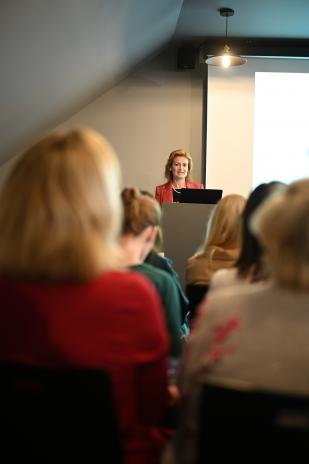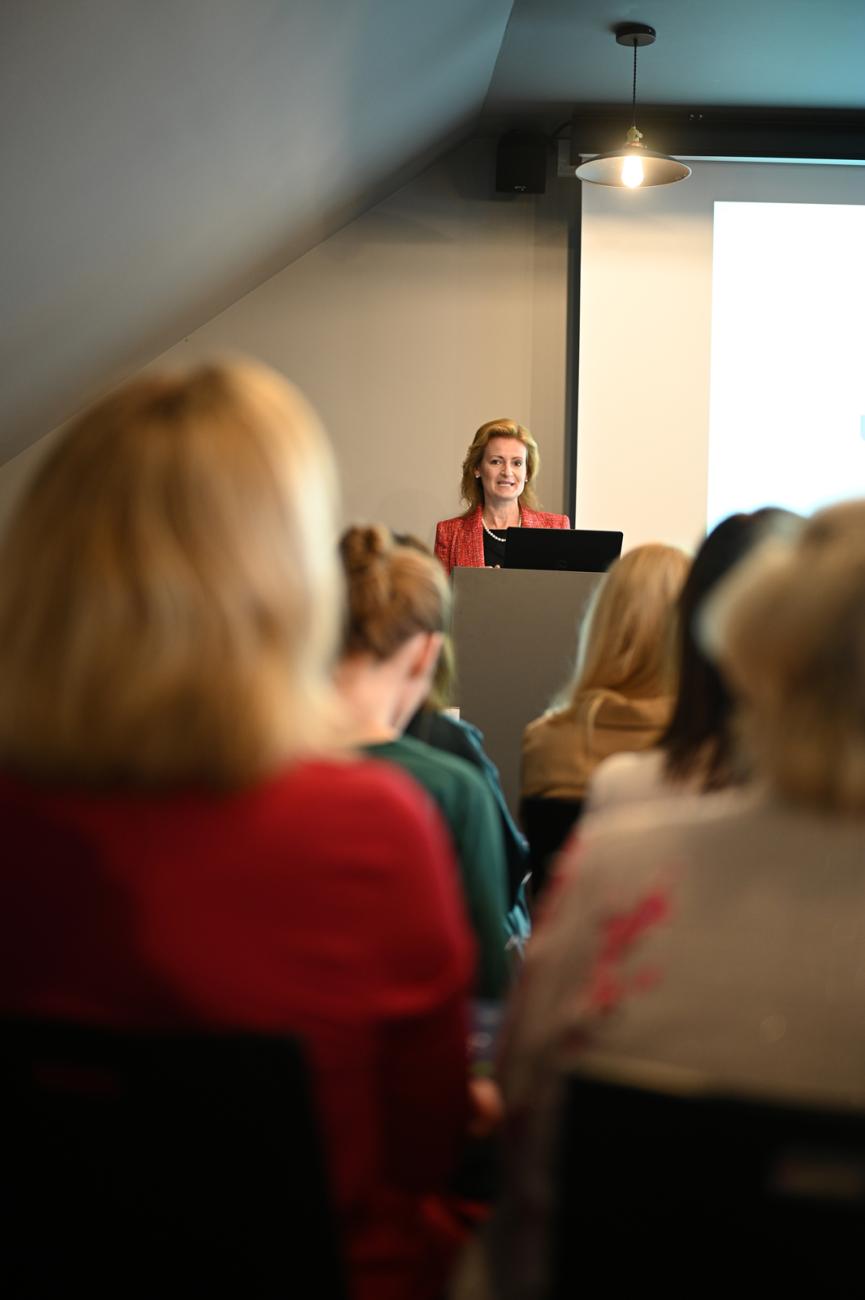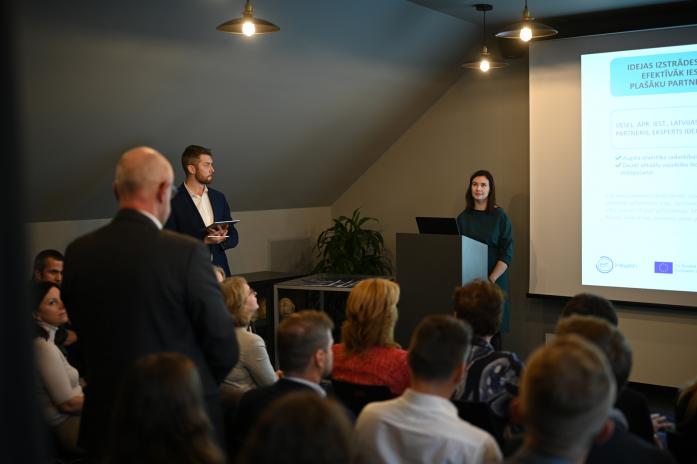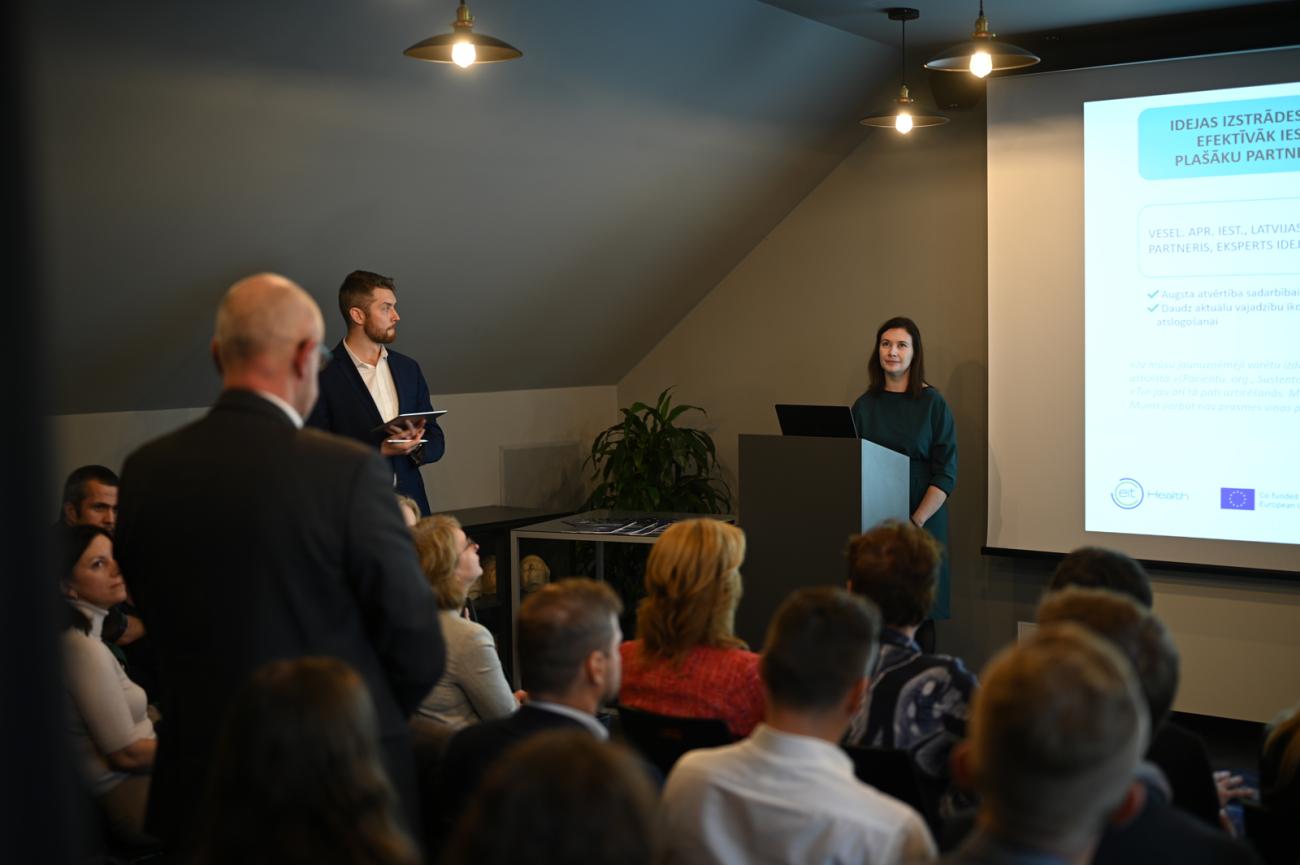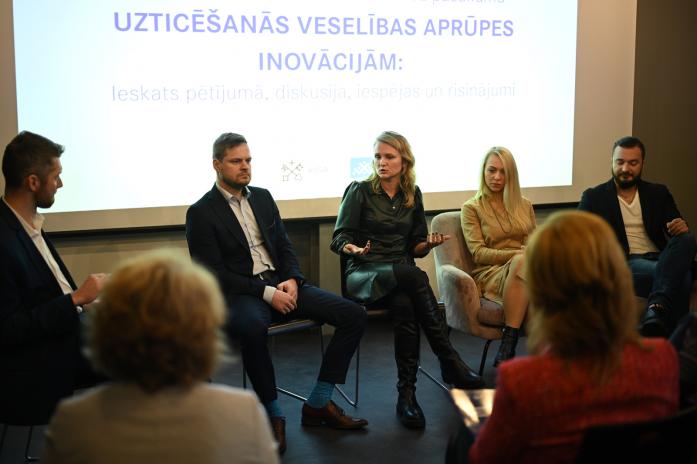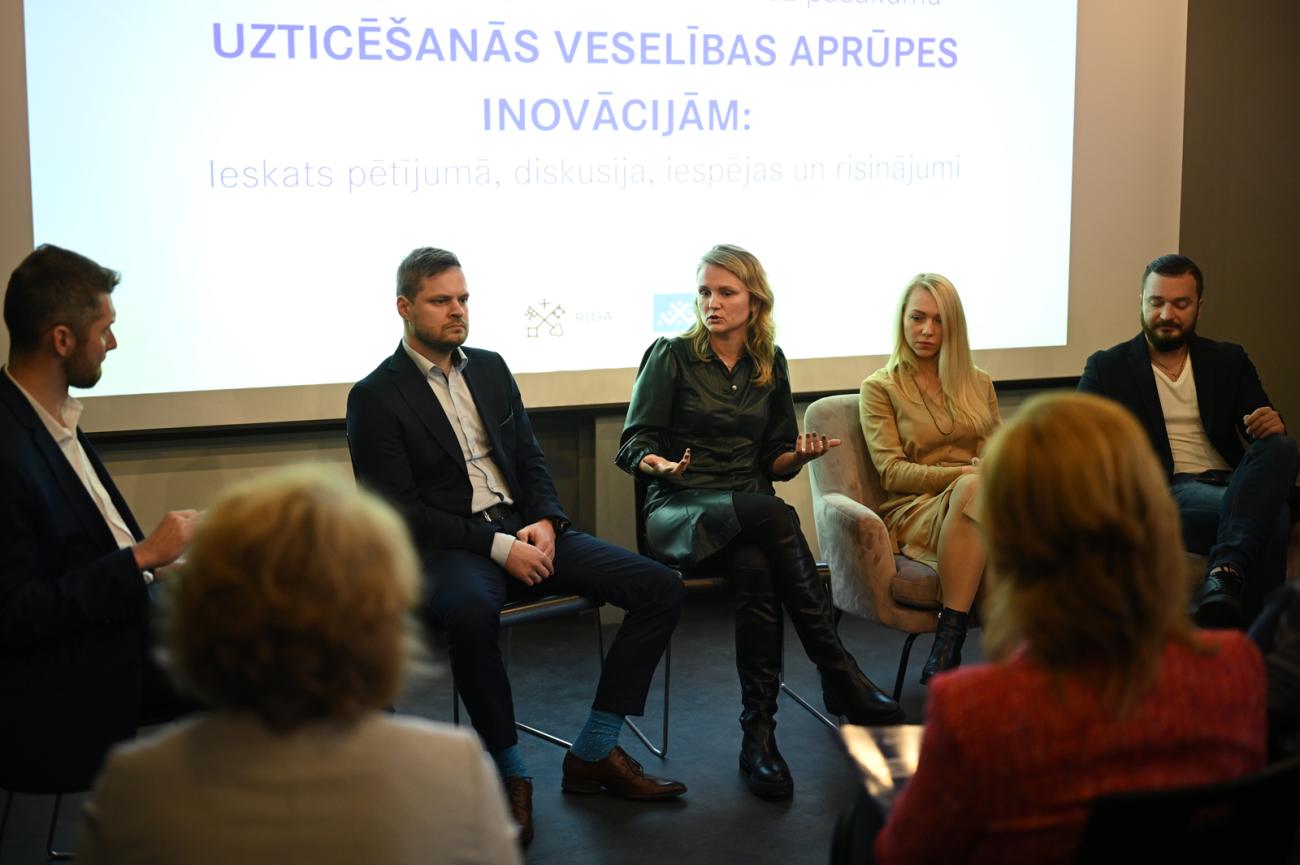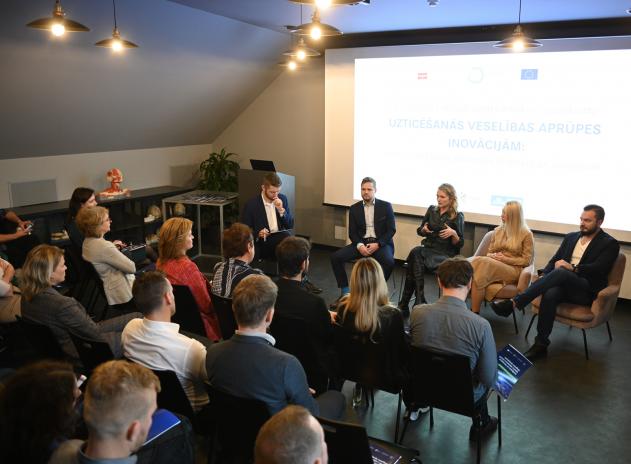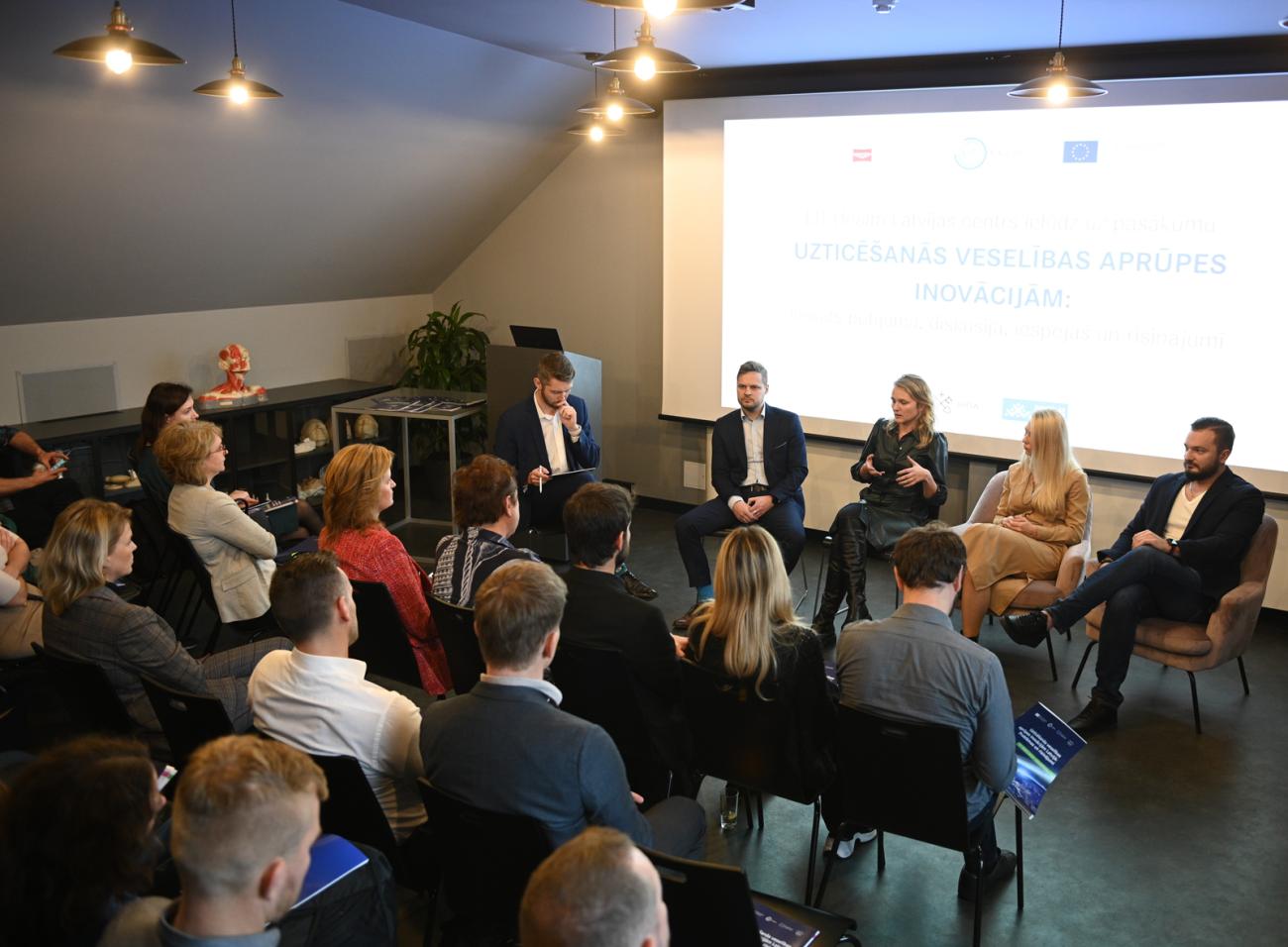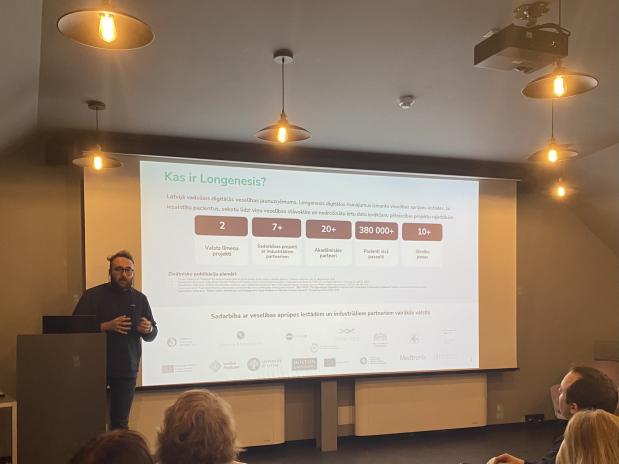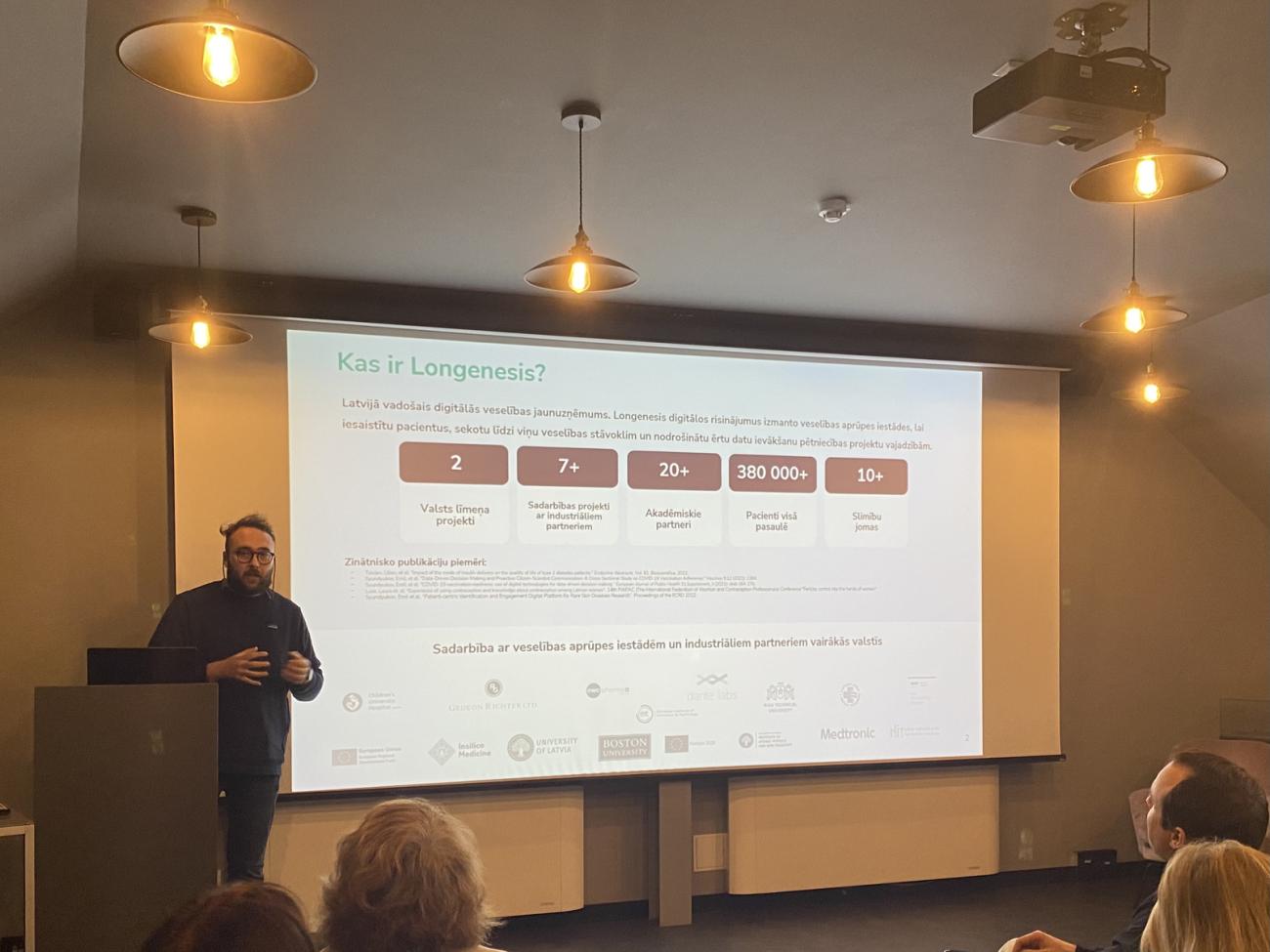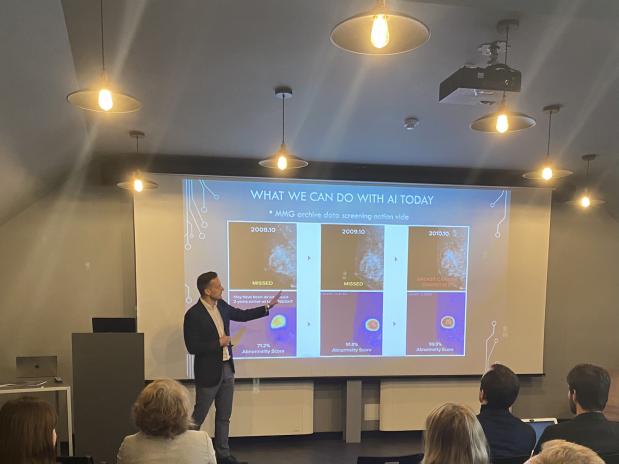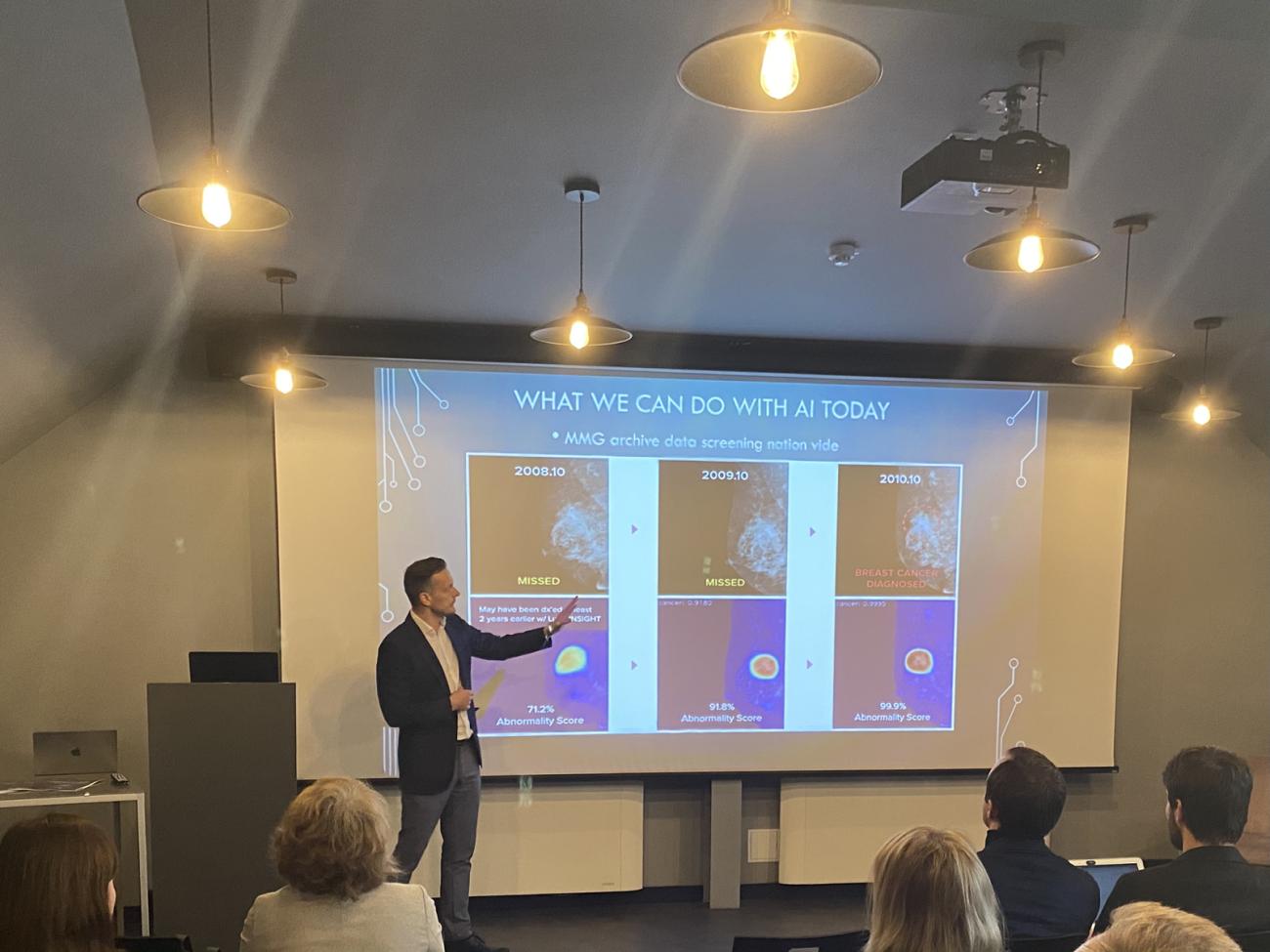Actors in the Latvian Healthcare Ecosystem Learn about EIT Health Hub Study on Innovations
On 28 October, the Rīga Stradiņš University (RSU) Anatomy Museum hosted an event to present a study conducted by the Latvian EIT Health Hub on people’s trust in healthcare innovations. The study addressed how open different actors in the health ecosystem (start-ups, healthcare institutions, public institutions, patient organisations, investors, the media) are to healthcare innovations. The study also identified ways in which this lack of trust could be reduced and collaboration between the different actors in the ecosystem could be strengthened. The results of the study were presented by Ieva Saukuma, researcher and chief data analyst at Berg Research, a partner of the Latvian EIT Health Hub.
The presentation was followed by a discussion with representatives from the sector – Āris Kasparāns, Director of the Latvian National Health Service, Ilze Zaharāne, co-founder and CEO at CheeksUp, Toms Stūrītis, Chief Executive Officer at LongVC, and Zoja Osipova, Head of Functional Specialists at the Vaivari Rehabilitation Centre. The discussion was moderated by Artis Ozoliņš, host of the LR1 programme Digitālās brokastis (Digital Breakfast).
In the second part of the event, the Latvian EIT Health Hub presented various opportunities to support innovation development in cooperation with Riga City Council. At the end of the event, the Digital Health Society presented innovative solutions that have been developed in Latvia. Healthcare innovators such as Medon, Meditec, Vigo Health, DoctoWell, Helve, and Longenesis shared their experiences.
‘Innovations in the health sector are very important as they have the potential to improve patient outcomes, reduce healthcare professionals’ workload, and promote the use of solutions developed by the latest scientific research. Innovations are also a powerful way to shape the national image – consider the example of Estonia, where innovation is highlighted as an important element of the national image and economic development,’ said Baiba Pētersone, Director of the International Relations Department at RSU and Head of the Latvian EIT Health Hub, addressing the participants of the event.
The study shows that the pandemic has highlighted the importance of innovations in healthcare. It also highlights a lack of national strategic vision and closer cooperation and exchange of experience between different institutions and their subordinate bodies. At the same time, there is a lack of public awareness of the nature of start-ups and low circulation of information on innovation in healthcare in Latvia.
Respondents pointed to a lack of national positioning and strategy to drive innovation at national level. There is unclear, uncoordinated cooperation between public authorities and healthcare institutions as well as a lack of targeted financial resources with clearly defined objectives.
Latvia also has an underdeveloped investment culture that would include clear strategic objectives, division of responsibilities, information flow regarding needs and supply, and sustainability and continuity of decisions. There is also a highly conservative and hierarchical internal culture in healthcare institutions, which does not encourage the identification of current needs, and consideration and initiation of cooperation between start-ups and healthcare institutions (involving, for example, patient organisations, the media, or investors).
At the same time, the general public has no understanding of the steps, development phases, the financial resources required, the potential for failure, etc., in a start-up. The lack of information on successful projects, their results, and their contribution to society, which could help understand their importance, was repeatedly highlighted during the study.
Bringing innovation to life in the health sector requires a transformation in the mindset of stakeholders. The study highlights the importance of changes at a national level, for example by defining the positioning of innovations in the national development plan and by taking on the role of coordinating start-ups and innovations and promoting partnerships. A very important step would be to direct budget resources to innovation in a targeted, consistent way: setting up accelerators, supporting universities and healthcare institutions, and creating a friendly tax policy, especially for start-ups in the early stages. At the same time, a structural unit with responsibility for implementing support and steering innovation in a specific field should be created within public administration.
To foster greater understanding and communication about innovations, an information source or platform should be provided where information on start-up projects and initiatives can be concentrated. This platform would serve as a binding information resource for the public sector, health authorities, the media, and patient organisations. There is also a need to increase business and innovation content in the media by ensuring that stories about the activities, ideas, plans, achievements, and research that start-ups carry out are accessible to the wider public.
‘Products need to evolve with their users. This is particularly important in the health sector, first of all because patients are more sensitive to success or failure, and second of all, we need to make sure that it does no harm and can achieve results. All this takes time and attention. Doctors and other professionals are tasked with evidence-based treatments, so they are normally only prepared to work with off-the-shelf solutions. They will not have the time to participate in developing them without additional motivation. Good solutions cannot emerge without knowing the needs of the users and testing the product in a real environment with all stakeholders. This is the only way to get valid solutions that can fit into the existing workflow and make the work more efficient and easier in the end. When CheeksUp needed testing, I set up my own private practice because I had not been able to find partners to test and implement the solution in a short period of time. Two years later, children were able to receive speech therapy in the comfort of their own homes,’ says Ilze Zaharāne, Co-Founder and CEO of CheeksUp.
EIT Health is a European public-private network in the field of healthcare created by more than 150 partners (i.e., leading European companies, universities, research and development centres, hospitals, and institutes). The mission of the network is to provide healthcare that will enable Europeans to live longer and healthier lives. EIT Health improves the skills of European healthcare professionals by investing in their professional development and promoting international commercialisation of innovative medical products. The Latvian EIT Health Hub has been located at Rīga Stradiņš University since January 2019.
For more information about the study contact the RSU International Department at eithealth rsu[pnkts]lv
rsu[pnkts]lv
Related news
 RSU students win silver in European i-Days finals with idea for medical deviceFor Students, Innovation, Recognition, EIT Health
RSU students win silver in European i-Days finals with idea for medical deviceFor Students, Innovation, Recognition, EIT Health